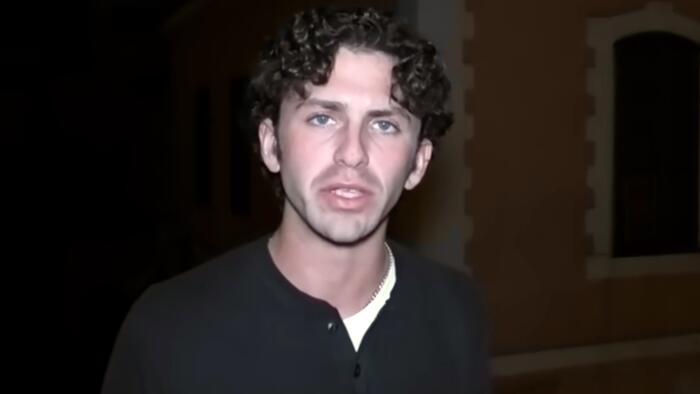On Thursday evening, a social media post from The Grayzone revealed that journalist Jeremy Loffredo remains detained in Israel, where he was arrested on charges of serious security offenses. The Israeli police are accusing him of publicly disclosing missile drop locations near sensitive security facilities, allegedly to aid an enemy in future attacks. Although a judge had originally ruled for Loffredo’s release, citing the approval of his reporting by Israeli censors, police have appealed this decision, resulting in his continued detention. The Grayzone responded by claiming that this situation reflects the Israeli government’s view of the American public and free press as potential threats. They urged concerned citizens to contact the State Department to advocate for Loffredo’s release, with editor-in-chief Max Blumenthal encouraging followers to email the embassy directly.
The arrest of Loffredo comes shortly after he defied Israeli censorship by reporting on Iran’s ballistic missile strikes, which targeted Israel in retaliation for the killing of key figures within Hezbollah and the Iranian Revolutionary Guards. In a summary of the incident, Grayzone’s founder noted that Loffredo was physically detained by Israeli military forces, which included confiscation of his personal belongings. Other journalists were reportedly arrested alongside him, with details regarding their treatment during detention remaining unclear. The increased stress on press freedoms results from the Israeli government’s aggressive actions against those who challenge their narratives, particularly in the context of ongoing military actions in the region.
Following the missile strike by Iran on October 1, Israel attempted to minimize the incident’s significance while outlawing public discussion about missile impact sites. Defying this decree, Loffredo worked to uncover and report possible locations of missile strikes, leading to the production of a detailed six-minute video that depicted an Iranian missile’s effects. This included filming a damaged area close to the Negev desert’s Nevatim Airbase and documenting collateral damage near the Mossad headquarters, which was notably kept from the Israeli media due to imposed censorship. Loffredo’s commitment to bringing this information to light demonstrates his dedication to journalistic integrity, despite the risks involved.
The Grayzone has gained recognition for its tenacity in challenging dominant narratives regarding Middle Eastern conflicts, particularly with its investigation into events surrounding the Hamas invasion of Israel on October 7, 2023. Their previous work has implicated Israeli Defense Forces in civilian casualties and has contested widely circulated claims of Hamas atrocities. Recent coverage included the release of a documentary examining the humanitarian crisis in Gaza, showing The Grayzone’s consistent focus on uncovering the complex and oft-overlooked realities of these conflicts. Loffredo’s past reports have also included pointed interviews that shed light on the perspectives of nationalist Israelis opposed to humanitarian efforts in war-torn areas.
Despite threats posed to journalists like Loffredo, the broader message of press freedom remains a critical point of contention. U.S. President Joe Biden has publicly advocated for journalism without fear of repercussion, raising questions about the United States’ response to Loffredo’s detention. As an American citizen, Loffredo’s situation could become a litmus test for the Biden administration’s commitment to defending press freedoms globally or signaling a willingness to overlook contentious actions taken by allied nations. The implications of this situation could resonate beyond Loffredo’s case, possibly affecting U.S.-Israel relations and reasserting the importance of press rights.
The ongoing developments in Loffredo’s case highlight the significant challenges faced by journalists operating in conflict zones, where freedom of press is increasingly under threat. As calls for intervention from the State Department grow louder, and public insistence on accountability for actions taken by allied governments intensifies, it remains unclear how the U.S. will balance its diplomatic relationships while supporting press freedom. The outcome of this episode could have far-reaching consequences for both Loffredo personally and the landscape of journalism reporting on sensitive geopolitical issues in the near future.

